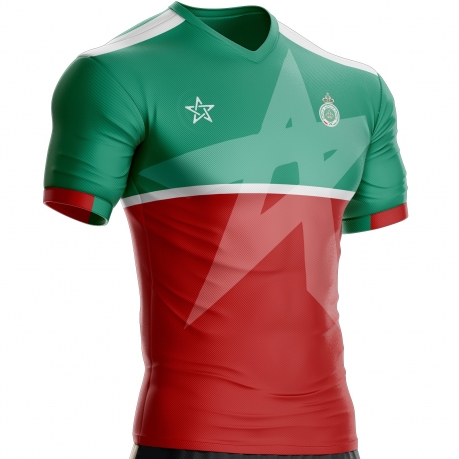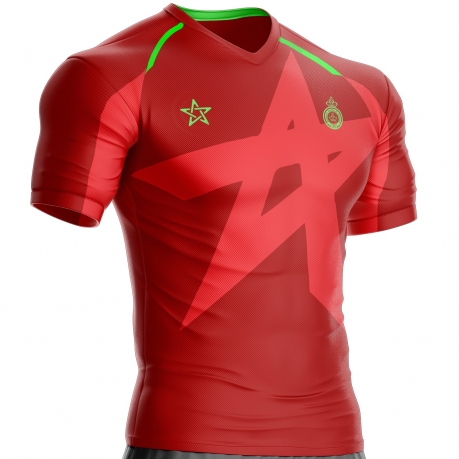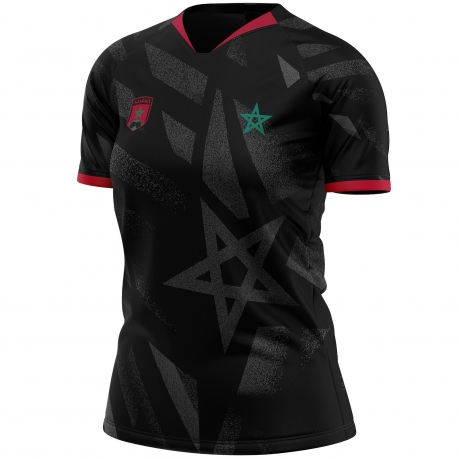Top 10 most expensive Moroccan player transfers

The masters of the ball: The record transfers of Moroccan footballers
Football, a true religion in Morocco, sees its players shine brightly on fields all over the world. Their talent and passion attract the attention of the biggest European clubs, leading to a surge in transfer prices. Let's discover together the most spectacular transactions in the history of Moroccan football, and explore the implications of this meteoric rise.
Moroccan football is booming. National players, with their dazzling technique and fighting spirit, are establishing themselves as essential elements on the international scene. This rise in power is reflected in concrete terms by the exponential increase in prices during transfers.
Achraf Hakimi, a true football virtuoso, holds the record for the most expensive transfer for a Moroccan player. In 2021, he left Inter Milan to join Paris Saint-Germain for the colossal sum of 60 million euros. Other resounding transfers, such as those of Hakim Ziyech (Chelsea), Youssef En-Nesyri (FC Sevilla) and Noussair Mazraoui (Bayern Munich), confirm the international recognition of the talent of Moroccan footballers.
But what explains this surge in prices?
Several factors combine to create this dynamic. First, the undeniable talent of Moroccan players is at the heart of this development. Their technical skill, their vision of the game and their unfailing commitment make them valuable assets for ambitious European clubs.
In addition, the remarkable performances of the Moroccan national team on the international stage have helped propel Moroccan players to the forefront. The Atlas Lions have a string of successes and their participation in the World Cup has strengthened their notoriety on a global scale.
Finally, the financial aspect cannot be ignored. European clubs, with substantial resources, are ready to invest astronomical sums to secure the services of the best Moroccan players, thus contributing to the increase in transfer prices.
These record transfers are not without impact on Moroccan football. They breathe a breath of hope and inspire the younger generation to dream big and aim for the heights of international football. The economic benefits also allow Moroccan clubs to develop their infrastructure and unearth promising new talents.
In conclusion, the record transfers of Moroccan footballers symbolize their meteoric rise in the world of football. They constitute tangible proof of their exceptional talent and their growing contribution on the international scene. The future looks bright for the Atlas Lions, and there is no doubt that new records will be broken in the years to come, consolidating Morocco's place as a fertile and talented football land.
The rising stars of Moroccan football: An analysis of record transfers
The case of Achraf Hakimi is emblematic of this new era. In 2021, he left Inter Milan to join Paris Saint-Germain for a record fee of 60 million euros. This historic transaction makes him the most expensive Moroccan player in history and confirms his status as a world football star.
Other important transfers punctuate the meteoric rise of Moroccan players. Hakim Ziyech, talented winger, signed with Chelsea for 40 million euros. Youssef En-Nesyri, formidable scorer, joined Sevilla FC for 30 million euros. As for Noussair Mazraoui, a promising full-back, he signed for Bayern Munich for 27 million euros.
These transactions are not the result of chance. They can be explained by several key factors which contribute to the increase in transfer prices for Moroccan players:
Undeniable talent: Moroccan players demonstrate exceptional individual technique, a keen vision of the game and flawless combativeness. They excel in different positions and easily adapt to the playing styles of European clubs.
National team success: The remarkable performances of the Moroccan national team, particularly at the World Cup, have drawn attention to the country's talent pool. The notoriety and credibility of Moroccan football are reinforced.
Financial power of European clubs: European clubs, with substantial budgets, are constantly looking for talented players to strengthen their squads and increase their chances of success. They are ready to invest significant sums to secure the services of the best Moroccan players.
Positive impact on Moroccan football: These record transfers have a positive impact on Moroccan football. They breathe a breath of optimism and motivation into the younger generation. Moroccan clubs benefit from the financial benefits to improve their infrastructure and develop their training programs.
In conclusion, the record transfers of Moroccan footballers symbolize the meteoric rise of Moroccan football on the international scene. They constitute recognition of the exceptional talent of Moroccan players and their growing contribution to the global football landscape. This positive dynamic augurs a bright future for Moroccan football, with new talents just waiting to shine on the biggest pitches in the world.
A bright future for Moroccan football
In conclusion, the record transfers of Moroccan players are not simple anecdotes. They constitute a true barometer of the growing quality of Moroccan football and its growing place in the world football landscape.
The exceptional talent of Moroccan players, combined with the success of the national team and the financial attractiveness of European clubs, has contributed to creating a positive dynamic which continues to strengthen.
These record transfers have also had a positive impact on the popularity of Moroccan football around the world. Supporters from around the world discover and admire the talent of Moroccan players, contributing to the development of national football.
The future looks bright for Moroccan football. The young generation, inspired by the successes of current players, dreams of following in their footsteps and flying the country's colors on fields around the world.
Investment in youth training, infrastructure development and the professionalization of Moroccan clubs are all factors that will allow Moroccan football to continue its growth and assert itself as an essential force on the international scene.
Morocco has all the assets to become a major football nation. By relying on its talented pool of players and continuing to develop its infrastructure, Moroccan football can write glorious new pages in its history and inspire future generations.








